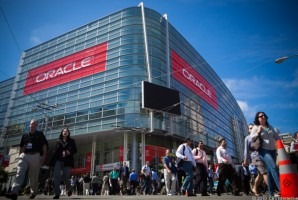
Oracle redeemed itself this week when it pledged to resume porting its software to HP’s Itanium-based servers, but it should never have pulled that support from a critical platform as it did in March 2011, according to users and analysts.
Oracle announced last year that it would stop adapting new versions of its database and other software to Itanium, the high-end enterprise processor architecture from Intel that is primarily used by HP. The decision surprised HP and its partners and customers, and it led some enterprises to question Itanium as a future platform, according to one system integrator.
The decision led to HP suing Oracle in June 2011, charging breach of contract. Oracle countersued, saying HP was secretly planning to phase out Itanium. Last month, the federal judge hearing the case found that Oracle was obligated to keep porting its products to the platform, and on Tuesday, Oracle announced it would do so.
The company said it will introduce Itanium versions of each new generation of its software, on the same schedule as it does for IBM’s Power processors, for as long as HP keeps selling the servers. The companies still need to face off in a second phase of the trial, in which a jury will consider a damages award for HP.
“I’m cautiously optimistic,” said Bill Pedersen, an enterprise IT consultant who runs Computer Consulting System Services, in Gaffney, South Carolina. He was one of several users and channel partners that voiced concern about Oracle’s retreat in an HP press release last year.
Oracle may not have used up all its legal options, but it looks like the company is bound by a solid contract to keep porting the software, Pedersen said.
The March 2011 announcement intensified worries about the future of Itanium that some users already had, Pedersen said. “Hopefully, that will help ease the situation,” he said. “It’s a big thing.” Pedersen is confident HP is committed to Itanium for the long haul and hopes the company will devote more marketing effort to the platform.
Pedersen specialises in OpenVMS, an operating system with roots in the VAX minicomputer platform that Digital Equipment introduced in the 1970s. Itanium is critical to users of OpenVMS because it’s the only currently shipping hardware platform that can deliver the operating system’s unmatched dependability, according to Alan Winston, a systems administrator at a San Francisco Bay Area research lab.
Winston’s lab still uses OpenVMS on Itanium extensively, and on that platform it runs RDB, a Digital-developed database that Oracle acquired in 1994.
“I thought it was a pretty irresponsible decision” for Oracle to declare an end to Itanium porting, Winston said. The implications of cutting off future versions of Oracle software for OpenVMS-Itanium systems could be grave, because that architecture is used in many critical systems, including stock exchanges, lotteries, and medical-records repositories, he said.
Winston sees no signs that HP wants to abandon Itanium and is confident the company would keep supporting customers for several more years if it did. He welcomed Oracle’s reversal and plans to keep using Itanium-based servers in his own environment. But the battle between the vendors may give cause for worry about Oracle on Itanium, he said.
“If I were starting up a new enterprise, I would really think twice about betting any money on a platform that’s supported by a company only because they lost a lawsuit,” Winston said.
Another system integrator that HP quoted last year said he takes Oracle at its word that it will follow through on continued porting. John Vigliecca, chief operating officer at system integrator Dasher Technologies, said Oracle’s move against Itanium had made customers who were planning new deployments cautious about using Oracle on Itanium.
Industry analysts also are optimistic.
“All you can really say when a company has been found so clearly in breach of its responsibilities is that you hope that they act like adults and get back to work,” said Pund-IT analyst Charles King.
Ray Wang of Constellation Research thinks IT administrators may be forgiving in the end.
“People can understand … that this was just a lot of eagerness on both ends to make a point,” Wang said.





